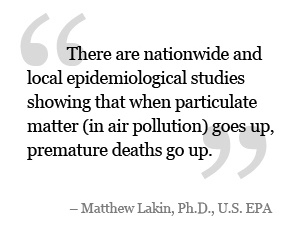Children’s Exposure to Wood Smoke: Small People, Big Problems
There are several new studies that show how pollution from biomass combustion, such as wood burning, has negative impacts on children’s heath. Some of these effects occur during pregnancy, creating lifelong damage to the developing fetus. From rural cook stoves in Africa to the mix of urban pollution in American cities, mothers and children are increasingly exposed to toxins and carcinogens from wood smoke, and their health is being compromised at unprecedented levels.
According to researchers at the University of California at Riverside and at Pitzer College in Claremont, California, children exposed to open-fire cooking in developing countries experience difficulty with memory, problem-solving, and social skills. The study concludes, “Exposure to wood-burning stoves may be more damaging than people realize. It could have cognitive and behavioral effects.”
Recent studies have also shown that prenatal exposure to air pollution can slow lung development in children and cause respiratory ailments, such as allergies and asthma.
These new studies highlight the fact that wood smoke is not only dangerous for those who are already at risk, such as those who suffer from asthma or cardiovascular illness. Wood smoke and other pollutants are also dangerous for developing fetuses and children in ways that are much more profound and long lasting than thought previously.
These studies join the growing body of evidence that wood smoke is a major public health threat that needs to be addressed in order to protect our children’s health and well-being.




